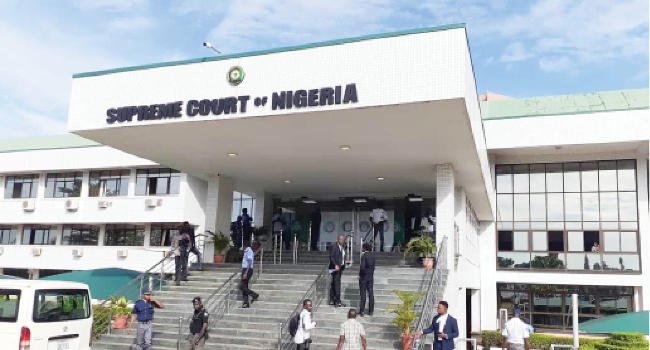Politics
Supreme Court rests debate over 25% FCT votes to become president

The Supreme Court has finally put to rest the controversy surrounding the 25 per cent votes from the Federal Capital Territory (FCT), to determine who emerges Nigeria’s President.
The 25 per cent Abuja vote was one of the grounds of the petition of the Labour Party and its presidential candidate in the February 25 presidential election, Peter Obi.
The LP had based its argument on the provisions of Section 134 (1) and (2) of the 1999 Constitution of Nigeria (as amended) which stipulates that a presidential candidate must attain or score a majority of votes cast in a presidential election, where two or more candidates are involved, and at least 25% in two-thirds of the 36 States and FCT to meet the constitutional requirement to be declared as duly elected as President of Nigeria.
READ ALSO Tinubu wins it all! Supreme Court dismisses Obi’s petition too
However, the controversy was settled by the apex court on Thursday which upheld the Appeal Court’s ruling on the 25 per cent of votes in Abuja needed to win the presidential election.
Before the appeal court ruling, the Presidential Election Petitions Tribunal had declared that the Federal Capital Territory does not hold a higher status than other states in the country.
While delivering its verdict, the seven-panel of justices led by Justice Inyang Okoro pointed out that scoring 25% of votes in the FCT is not a mandatory requirement for declaration of a candidate as the winner of presidential election.
Join the conversation
Support Ripples Nigeria, hold up solutions journalism
Balanced, fearless journalism driven by data comes at huge financial costs.
As a media platform, we hold leadership accountable and will not trade the right to press freedom and free speech for a piece of cake.
If you like what we do, and are ready to uphold solutions journalism, kindly donate to the Ripples Nigeria cause.
Your support would help to ensure that citizens and institutions continue to have free access to credible and reliable information for societal development.
























